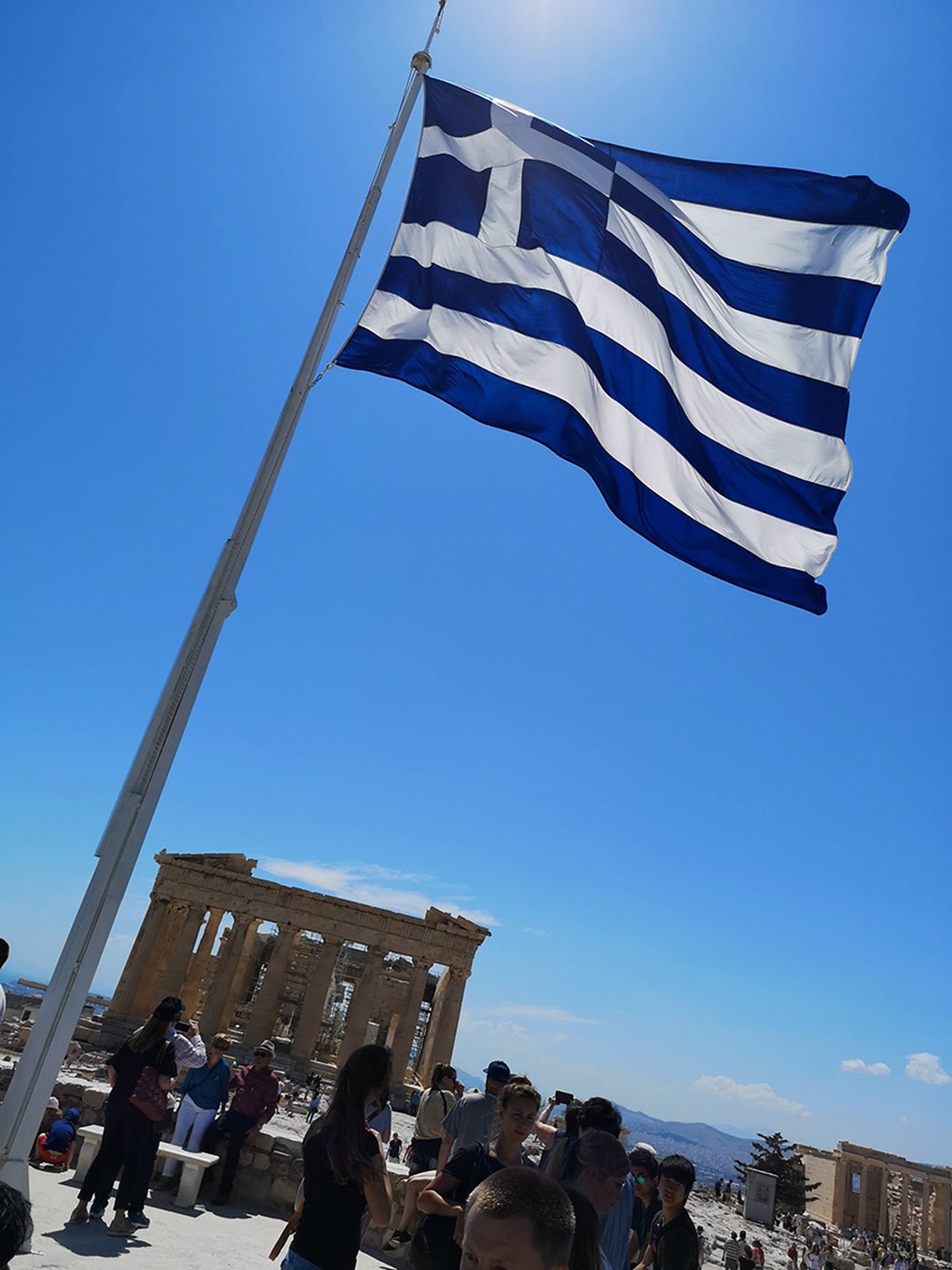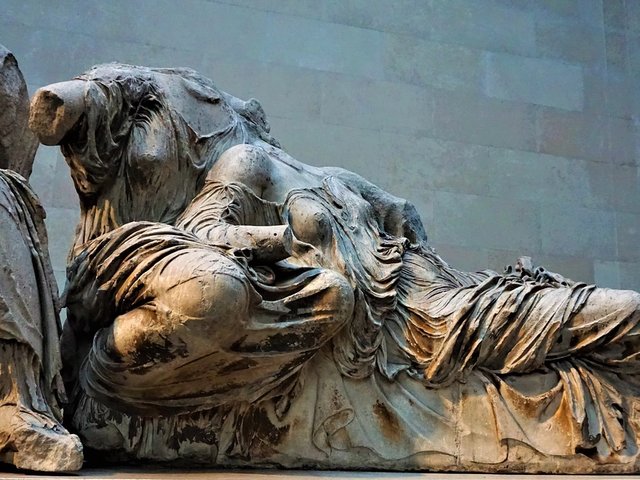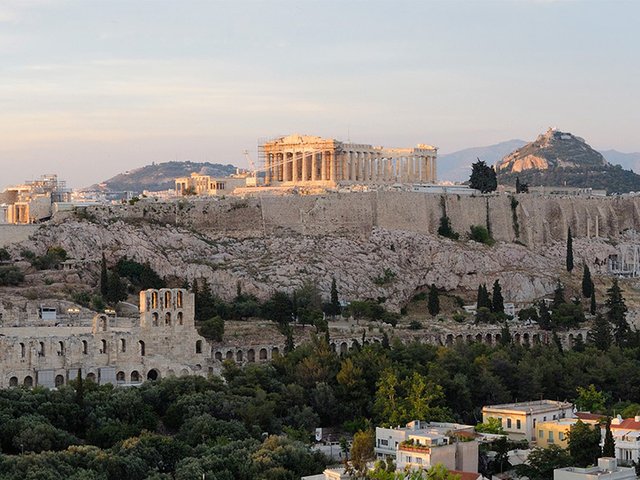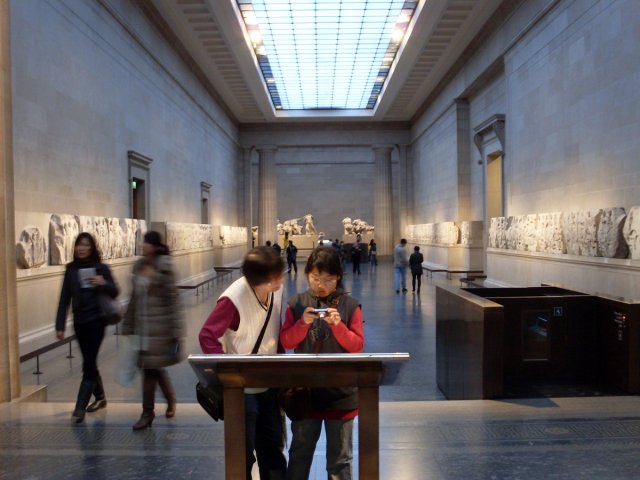A Unesco advisory body has put pressure on the British Museum to reconsider its position on the Parthenon Marbles, says the Greek culture minister, Lina Mendoni, reigniting the long-standing debate over the reunification of the works which have been housed at the London institution since the early 19th century. A recommendation for the UK government to enter into talks with Greece was made by the ICPRCP committee which met recently in Paris.
Mendoni told the Greek City Times website: “The [Unesco] committee urgently calls on the United Kingdom to review its position and enter into a discussion with Greece, recognising that the issue is of an intergovernmental nature—in contrast to claims from the British side that it is a matter for the British Museum—and mainly that Greece has a valid and legal claim to demand the return of the sculptures to their place of birth.” She also claimed that the committee referred to “the poor conditions of exposure [display] that the sculptures are kept in at the British Museum”.
In August, water seeping into the British Museum’s Greek galleries from a leaky roof had delayed the reopening of seven galleries of Greek art, including the museum’s display of the Parthenon sculptures. At the time of writing, it is unclear if the galleries have reopened.
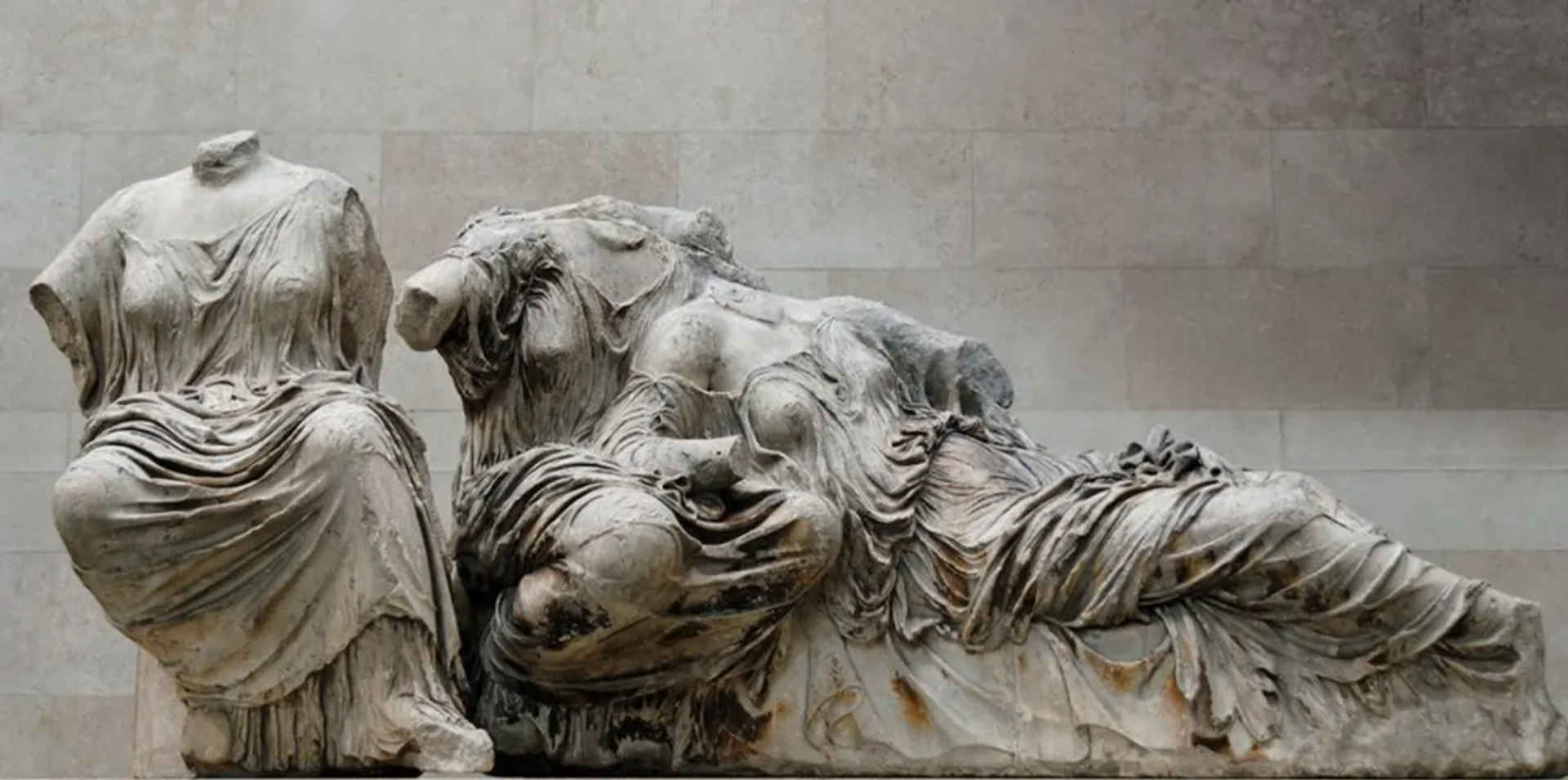
Parthenon sculptures in the British Museum © Marie-Lan Nguyen
A spokeswoman for Unesco said that the recommendations were made by the ICPRCP Intergovernmental Committee which “promotes the return of cultural property to its countries of origin or its restitution in case of illicit appropriation”. The ICPRCP advisory body facilitates bilateral negotiations and offers mediator services to states concerning the return and restitution of cultural property.
“It is not Unesco's role to comment on a decision of one of its intergovernmental advisory bodies. The decisions of the 22nd session of the ICPRCP will be published during the month of October,” the Unesco spokeswoman adds. The ICPRCP has regularly called for the UK to review its stance regarding the Parthenon Marbles over the past three decades.
The fifth-century-BC statues have been housed in the British Museum since 1816 after they were removed from the Parthenon temple on the Acropolis in Athens by the Scottish nobleman Lord Elgin, the then ambassador to the Ottoman court.
In an online statement, the trustees of the British Museum say that Elgin acted with the full knowledge and permission of the legal authorities of the day in both Athens and London. “The sculptures on display in London convey huge public benefit as part of the museum's worldwide collection,” they add. The statement reiterates that the trustees have never been asked for a loan of the Parthenon sculptures by Greece, “only for the permanent removal of all of the sculptures in its care to Athens”.
UPDATE: A British Museum spokeswoman says: "Galleries 12, 13 and 14 have reopened. Galleries 15 through 18 (which includes the Parthenon) are closed whilst further assessments to building structure are done. These will be reopened later in the autumn this year."
UPDATE (5 October): According to Artnet News, the UNESCO intergovernmental commission voted unanimously for the first time at its 22nd session to include the return of the Parthenon Sculptures in its recommendation documents.


